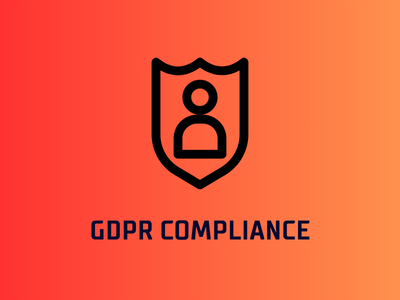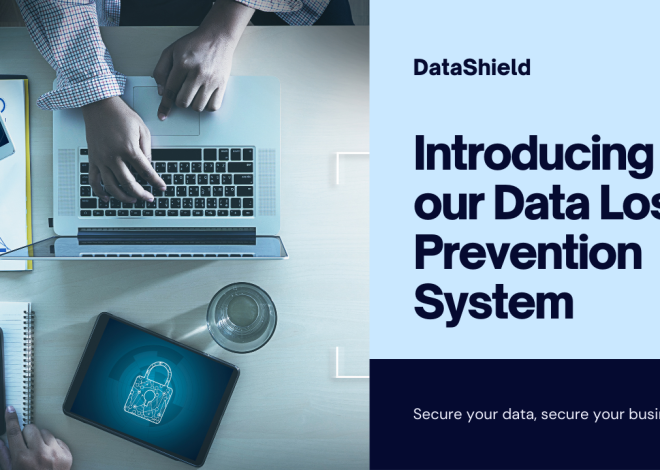
GDPR Compliance
Contents
- 1 Understanding Data Privacy and GDPR Compliance: A Guide for Organizations
- 1.1 What is GDPR?
- 1.2 Key Principles of GDPR Compliance
- 1.3 Real-World Example: GDPR Compliance in Action
- 1.4 Implementing GDPR Compliance in Your Organization
- 1.5 How Might GDPR Compliance Affect You?
- 1.6 GDPR Compliance Checklist
- 1.6.1 1. Data Mapping
- 1.6.2 2. Privacy Policy
- 1.6.3 3. Consent Management
- 1.6.4 4. Data Minimization
- 1.6.5 5. User Rights
- 1.6.6 6. Security Measures
- 1.6.7 7. Third-Party Services
- 1.6.8 8. Cookies and Tracking
- 1.6.9 9. Data Breach Response
- 1.6.10 10. Data Protection Officer (DPO)
- 1.6.11 11. Regular Audits and Updates
- 1.6.12 12. Documentation
- 1.7 How to get GDPR Compliance
- 1.8 Steps to Get GDPR Certification
- 1.8.1 1. Understand GDPR Requirements
- 1.8.2 2. Conduct a GDPR Audit
- 1.8.3 3. Implement Compliance Measures
- 1.8.4 4. Choose a Certification Body
- 1.8.5 5. Prepare Documentation
- 1.8.6 6. Submit an Application
- 1.8.7 7. Undergo an Audit
- 1.8.8 8. Address Audit Findings
- 1.8.9 9. Receive GDPR Certification
- 1.8.10 10. Maintain GDPR Compliance
- 1.9 GDPR Compliance Certification Bodies and Schemes
- 1.10 Careers and Jobs in GDPR in India
- 1.11 Skills and Qualifications Needed
- 1.12 GDPR Compliance Job Market in India
- 1.13 Key Employers
- 1.14 Industry Impact
- 1.15 Career Growth and Opportunities
- 1.16 Conclusion
Understanding Data Privacy and GDPR Compliance: A Guide for Organizations
In today’s digital age, data privacy has become a paramount concern for both individuals and organizations. With the advent of the General Data Protection Regulation (GDPR), businesses operating within the European Union (EU) or dealing with EU citizens’ data must adhere to stringent data protection requirements. This blog will delve into what GDPR is, provide examples of its implications, and offer guidance on how organizations can effectively implement GDPR to ensure compliance.
What is GDPR?
The General Data Protection Regulation (GDPR Compliance) is a comprehensive data protection law enacted by the European Union, effective May 25, 2018. Its primary aim is to safeguard the personal data of EU citizens and residents, giving them greater control over their information. GDPR applies to any organization, regardless of location, that processes the personal data of individuals within the EU.
Key Principles of GDPR Compliance
- Lawfulness, Fairness, and Transparency: Personal data must be processed lawfully, fairly, and transparently.
- Purpose Limitation: Data should be collected for specified, explicit, and legitimate purposes and not further processed in a manner incompatible with those purposes.
- Data Minimization: Only the data necessary for the intended purpose should be collected and processed.
- Accuracy: Personal data must be accurate and kept up to date.
- Storage Limitation: Data should be retained only as long as necessary for the intended purpose.
- Integrity and Confidentiality: Personal data must be processed in a manner that ensures appropriate security.
- Accountability: Organizations are responsible for demonstrating compliance with GDPR principles.
Real-World Example: GDPR Compliance in Action
Consider the case of a multinational e-commerce company, ShopAll, which collects and processes customer data to facilitate online purchases. ShopAll operates in several EU countries, making GDPR compliance essential. Here’s how GDPR impacts ShopAll:
- Data Collection: ShopAll must inform customers about what personal data is being collected, why it’s needed, and how it will be used. This information must be clear and accessible.
- Consent: Before collecting any data, ShopAll must obtain explicit customer consent. This consent should be freely given, specific, informed, and unambiguous.
- Data Access and Portability: Customers can access their data and request that it be transferred to another service provider.
- Data Erasure: If a customer requests the deletion of their data (the right to be forgotten), ShopAll must comply, provided there are no legal grounds for retaining the data.
- Data Breach Notification: In the event of a data breach, ShopAll must notify the relevant supervisory authority within 72 hours and inform affected customers without undue delay.
Implementing GDPR Compliance in Your Organization
Implementing GDPR requires a structured approach and commitment to data privacy. Here are steps organizations can take to ensure compliance:
- Appoint a Data Protection Officer (DPO): If your organization processes large amounts of personal data, appointing a DPO can help oversee GDPR compliance efforts.
- Conduct Data Audits: Regularly review data collection, storage, and processing practices to ensure they align with GDPR requirements. Identify what data you collect, where it is stored, and who has access to it.
- Update Privacy Policies: Revise privacy policies to include detailed information about data processing activities, the rights of data subjects, and how they can exercise those rights.
- Implement Data Security Measures: Adopt robust security measures to protect personal data, including encryption, access controls, and regular security assessments.
- Train Employees: Educate employees about GDPR and data privacy best practices. Ensure they understand their roles and responsibilities in maintaining compliance.
- Establish Data Subject Rights Procedures: Develop clear procedures for handling data subject requests, such as access, rectification, and erasure requests. Ensure these procedures are easy to follow and responsive.
- Create a Data Breach Response Plan: Establish a protocol for responding to data breaches, including timely notification of relevant authorities and affected individuals.
How Might GDPR Compliance Affect You?
The General Data Protection Regulation (GDPR) has far-reaching implications for both individuals and organizations. Understanding how GDPR might affect you is crucial, whether you’re a business owner, an employee, or an EU citizen. Here’s a breakdown of the potential impacts:
For Businesses
- Compliance Costs: Implementing GDPR requires significant investment in time and resources. Businesses may need to hire Data Protection Officers (DPOs), update IT systems, and train staff on data protection practices.
- Enhanced Data Security: Businesses must adopt stringent data security measures, reducing the risk of data breaches and fostering trust with customers.
- Increased Accountability: Organizations are required to document data processing activities and demonstrate compliance with GDPR principles, increasing transparency and accountability.
- Potential Fines: Non-compliance with GDPR can result in hefty fines, up to €20 million or 4% of annual global turnover, whichever is higher. This serves as a significant deterrent against lax data protection practices.
For Employees
- Training Requirements: Employees may need to undergo training to understand GDPR principles and their roles in maintaining data privacy and security.
- New Responsibilities: Staff involved in data processing must ensure compliance with GDPR, impacting daily operations and workflows.
- Increased Awareness: Employees handling personal data will become more aware of data privacy issues, fostering a culture of respect for individuals’ privacy rights.
Real-World Example: Impact on an E-Commerce Business
Consider the example of ShopAll, a multinational e-commerce company. Here’s how GDPR affects different stakeholders:
- Business: ShopAll must invest in GDPR compliance, including hiring a DPO, updating privacy policies, and implementing robust data security measures. Non-compliance could lead to significant fines.
- Employees: ShopAll’s employees, particularly those in IT and customer service, receive GDPR training to understand their roles in protecting customer data. They are responsible for ensuring that data processing activities comply with GDPR principles.
- Customers: ShopAll’s EU customers enjoy enhanced privacy protections. They can access their purchase history, request data corrections, and opt to have their data erased. Customers are also assured that their data is securely stored and processed.
Ensuring GDPR compliance for a blog involves taking several steps to protect users’ data and their privacy rights. Here is a checklist to help guide you through the process:
GDPR Compliance Checklist
1. Data Mapping
- Identify and document all personal data you collect, process, and store.
- Understand where the data comes from and where it is stored.
- Know who has access to this data and for what purposes.
2. Privacy Policy
- Create a clear and comprehensive privacy policy.
- Explain what data you collect, why you collect it, how it will be used, and how users can control their data.
- Ensure the privacy policy is easily accessible on your blog.
3. Consent Management
- Obtain explicit consent from users before collecting any personal data.
- Provide a mechanism for users to give or withdraw consent easily.
- Keep records of consents received.
4. Data Minimization
- Only collect data that is necessary for the specified purpose.
- Avoid collecting excessive data.
5. User Rights
- Inform users of their rights under GDPR Compliance, including the right to access, rectify, erase, and restrict the processing of their data.
- Provide mechanisms for users to exercise these rights easily.
6. Security Measures
- Implement appropriate technical and organizational measures to protect personal data.
- Use encryption, secure backups, and regular security audits.
7. Third-Party Services
- Ensure any third-party services you use (e.g., hosting, analytics, plugins) are GDPR compliant.
- Have data processing agreements in place with third parties.
8. Cookies and Tracking
- Inform users about the use of cookies and tracking technologies.
- Obtain user consent before placing cookies on their devices.
- Provide options for users to manage their cookie preferences.
9. Data Breach Response
- Establish a data breach response plan.
- Notify the relevant supervisory authority within 72 hours of discovering a breach.
- Inform affected users without undue delay.
10. Data Protection Officer (DPO)
- Determine if you need to appoint a Data Protection Officer.
- Provide the DPO’s contact information to users if applicable.
11. Regular Audits and Updates
- Regularly review and update your data protection practices.
- Stay informed about changes in GDPR and other relevant regulations.
12. Documentation
- Maintain detailed records of all data processing activities.
- Document compliance efforts and decisions regarding data protection.
By following this checklist, you can help ensure that your blog complies with GDPR Compliance requirements and protects your users’ privacy rights.
How to get GDPR Compliance
Getting GDPR certification involves a series of steps to demonstrate compliance with the General Data Protection Regulation (GDPR). While the GDPR itself does not provide certification, certain bodies and organizations offer GDPR certification schemes that can help validate your compliance. Here’s a guide on how to get GDPR certification:
Steps to Get GDPR Certification
1. Understand GDPR Requirements
- Familiarize yourself with the GDPR regulations and requirements.
- Identify the personal data you collect, process, and store, and understand your obligations under GDPR.
2. Conduct a GDPR Audit
- Perform a thorough audit of your data processing activities.
- Identify gaps in your compliance and areas that need improvement.
3. Implement Compliance Measures
- Update your privacy policies and procedures to align with GDPR.
- Ensure you have mechanisms for obtaining and managing user consent.
- Implement security measures to protect personal data.
- Provide training for employees on GDPR compliance.
4. Choose a Certification Body
- Research and select an accredited certification body that offers GDPR certification.
- Ensure the certification body is recognized by your country’s data protection authority or a reputable international organization.
5. Prepare Documentation
- Prepare detailed documentation of your data processing activities, privacy policies, security measures, and compliance efforts.
- Maintain records of data protection impact assessments (DPIAs) and any risk assessments conducted.
6. Submit an Application
- Submit an application for GDPR certification to your chosen certification body.
- Provide all required documentation and information about your data processing activities.
7. Undergo an Audit
- The certification body will conduct an audit of your data protection practices.
- Be prepared to provide additional information and access to relevant systems and processes during the audit.
8. Address Audit Findings
- Address any issues or non-compliance identified during the audit.
- Implement corrective actions and improvements as recommended by the certification body.
9. Receive GDPR Certification
- Once you have successfully demonstrated compliance, you will receive GDPR certification from the certification body.
- Display the certification on your website and marketing materials to demonstrate your commitment to data protection.
10. Maintain GDPR Compliance
- Continuously monitor and update your data protection practices to ensure ongoing compliance with GDPR.
- Prepare for regular re-certification audits to maintain your certification status.
GDPR Compliance Certification Bodies and Schemes
Some well-known GDPR certification bodies and schemes include:
- EuroPriSe (European Privacy Seal): Offers certification for IT products and services that comply with European data protection regulations.
- ePrivacyseal: Provides certification for data protection and IT security for online services, mobile apps, and cloud services.
- ISO/IEC 27001: Although not specific to GDPR, this certification for information security management systems can demonstrate your commitment to data protection.
The General Data Protection Regulation (GDPR) is a regulation enacted by the European Union (EU) to protect the data privacy of individuals within the EU. Although GDPR is a European regulation, its impact is global, as it affects any company handling the data of EU citizens, regardless of where the company is based. This has created a demand for GDPR compliance and expertise worldwide, including in India.
Careers and Jobs in GDPR in India
- Data Protection Officer (DPO):
- Role: A DPO is responsible for overseeing data protection strategy and implementation to ensure compliance with GDPR requirements.
- Skills Required: In-depth knowledge of GDPR, data protection laws, risk management, and cybersecurity.
- Demand: High in sectors such as IT, healthcare, finance, and any company dealing with EU citizens’ data.
2. GDPR Compliance Consultant
- Role: GDPR Compliance consultants provide expert advice on how to comply with GDPR regulations, conduct audits, and help organizations implement necessary changes.
- Skills Required: Expertise in GDPR, experience in data privacy, legal knowledge, and project management.
- Demand: Growing, especially among multinational companies and startups looking to expand into the EU market.
3. Legal Advisor (GDPR Compliance):
- Role: Legal advisors specializing in GDPR provide legal advice, draft data protection policies, and ensure that contracts and processes are GDPR-compliant.
- Skills Required: Legal expertise in data protection laws, GDPR, and contract law.
- Demand: High in legal firms, corporate legal departments, and consulting firms.
4. Data Privacy Specialist:
- Role: A data privacy specialist focuses on protecting personal data, ensuring compliance with privacy laws, and educating employees about data protection.
- Skills Required: Knowledge of GDPR, data privacy laws, cybersecurity, and risk management.
- Demand: Increasing across various sectors including IT, finance, and healthcare.
5. GDPR Compliance Officer:
- Role: Compliance officers ensure that the organization adheres to legal standards and in-house policies regarding data protection.
- Skills Required: Understanding of GDPR, regulatory compliance, auditing, and risk assessment.
- Demand: High in multinational companies, especially those with a significant online presence.
6. Cybersecurity Analyst:
- Role: Cybersecurity analysts protect an organization’s data and systems from cyber threats, ensuring data privacy and compliance with GDPR.
- Skills Required: Cybersecurity, GDPR knowledge, risk assessment, and threat mitigation.
- Demand: Growing due to the increasing threat of cyber-attacks and the need for robust data protection measures.
Skills and Qualifications Needed
- Education: Degrees in law, cybersecurity, IT, or business administration are often preferred. Specialized certifications in data protection (e.g., Certified Information Privacy Professional/Europe (CIPP/E), and Certified Information Privacy Manager (CIPM)) are highly valued.
- Experience: Relevant experience in data protection, cybersecurity, legal compliance, or a related field.
- Certifications: Industry-recognized certifications such as CIPP/E, CIPM, Certified Information Systems Security Professional (CISSP), and GDPR Practitioner are advantageous.
- Skills: Knowledge of GDPR and data protection laws, risk management, cybersecurity, project management, and strong communication skills.
GDPR Compliance Job Market in India
The job market for GDPR-related roles in India is expanding due to the increasing number of companies dealing with EU data subjects. Indian IT companies, BPOs, multinational corporations, and startups are particularly keen on hiring. Professionals with GDPR Compliance expertise to ensure compliance and maintain their market position in Europe.
Key Employers
- IT and Software Companies: Infosys, TCS, Wipro, HCL Technologies, Tech Mahindra.
- Financial Services: Banks, insurance companies, and financial consulting firms.
- Healthcare: Hospitals, pharmaceutical companies, and healthcare service providers.
- Legal Firms: Specializing in data protection and privacy laws.
- Consulting Firms: EY, Deloitte, KPMG, PwC.
Industry Impact
- IT & BPO: Significant impact due to the high volume of data processing and storage activities involving EU citizens.
- Healthcare: Strict compliance needed due to sensitive patient data.
- E-commerce: Compliance essential for companies handling personal data of EU customers.
- Finance: High demand for compliance due to stringent data protection requirements.
Career Growth and Opportunities
The career path in GDPR-related roles offers significant growth potential due to the increasing focus on data privacy and protection. As organizations continue to adapt to evolving regulations and cyber threats, professionals with expertise in GDPR compliance will find ample opportunities for career advancement and specialization.
- Entry-Level: Roles such as data protection assistant or junior consultant.
- Mid-Level: Positions like data privacy officer, GDPR consultant, or compliance manager.
- Senior-Level: Roles such as Chief Privacy Officer (CPO) or Head of Data Protection.
Conclusion
Data privacy is not just a regulatory requirement but also a fundamental right of individuals. By implementing GDPR Compliance, organizations can build trust with their customers, enhance their reputation, and mitigate the risks associated with data breaches. Understanding GDPR’s principles and taking proactive steps to ensure compliance will help organizations navigate the complex landscape of data protection and maintain the highest standards of privacy and security.
GDPR Compliance has a profound impact on businesses, employees, and individuals within the EU. For businesses, it necessitates significant changes to data handling practices, but it also offers an opportunity to build trust with customers through enhanced data protection. Employees must adapt to new responsibilities and increase awareness of data privacy issues.
By following these guidelines, organizations can not only comply with GDPR Compliance but also foster a culture of data privacy that benefits both the business and its customers.
Also read Best Cyber Security Practices And Precautions
Follow the official LinkedIn profile for more future updates, Nikhil Singh.








Hello! Do you know if they make any plugins to help with
Search Engine Optimization? I’m trying to get my website to rank for some targeted keywords but I’m not seeing very good success.
If you know of any please share. Thank you! You can read similar art here:
Wool product
) سأعيد زيارتها مرة أخرى لأنني قمت بوضع علامة كتاب عليها. المال والحرية هي أفضل طريقة للتغيير، أتمنى أن تكون غنيًا و
at web, except I know I am getting familiarity all the time by reading thes pleasant posts.|Fantastic post. I will also be handling some of these problems.|Hello, I think this is a great blog. I happened onto it;) I have bookmarked it and will check it out again. The best way to change is via wealth and independence. May you prosper and never stop mentoring others.|I was overjoyed to find this website. I must express my gratitude for your time because this was an amazing read! I thoroughly enjoyed reading it, and I’ve bookmarked your blog so I can check out fresh content in the future.|Hi there! If I shared your blog with my Facebook group, would that be okay? I believe there are a lot of people who would truly value your article.|منشور رائع. سأتعامل مع بعض هذه|
|Hello to all, for the reason that I am actually keen of
Děkuji|Ahoj všem, obsah, který je na této stránce k dispozici.
It contains fastidious material.|I think the admin of this website is actually working hard in favor of his site,
الاستمرار في توجيه الآخرين.|Ahoj, věřím, že je to vynikající blog. Narazil jsem na něj;
Můžete mi doporučit nějaké další blogy / webové stránky / fóra, které se zabývají stejnými tématy?
enten oprettet mig selv eller outsourcet, men det ser ud til
|Tato stránka má rozhodně všechny informace, které jsem o tomto tématu chtěl a nevěděl jsem, koho se zeptat.|Dobrý den! Tohle je můj 1. komentář tady, takže jsem chtěl jen dát rychlý
vykřiknout a říct, že mě opravdu baví číst vaše příspěvky na blogu.
devido a esta maravilhosa leitura!!! O que é que eu acho?
) Znovu ho navštívím, protože jsem si ho poznamenal. Peníze a svoboda je nejlepší způsob, jak se změnit, ať jste bohatí a
Com tanto conteúdo e artigos, vocês já se depararam com algum problema de plágio?
det. Denne side har bestemt alle de oplysninger, jeg ønskede om dette emne, og vidste ikke, hvem jeg skulle spørge. Dette er min 1. kommentar her, så jeg ville bare give en hurtig
Conhecem algum método para ajudar a evitar que o conteúdo seja roubado? Agradecia imenso.
) Znovu ho navštívím, protože jsem si ho poznamenal. Peníze a svoboda je nejlepší způsob, jak se změnit, ať jste bohatí a
Fiquei muito feliz em descobrir este site. Preciso de agradecer pelo vosso tempo
že spousta z něj se objevuje na internetu bez mého souhlasu.
ocenili váš obsah. Dejte mi prosím vědět.
Tak Hej der til alle, det indhold, der findes på denne
Kender du nogen metoder, der kan hjælpe med at forhindre, at indholdet bliver stjålet? Det ville jeg sætte stor pris på.
Conhecem algum método para ajudar a evitar que o conteúdo seja roubado? Agradecia imenso.